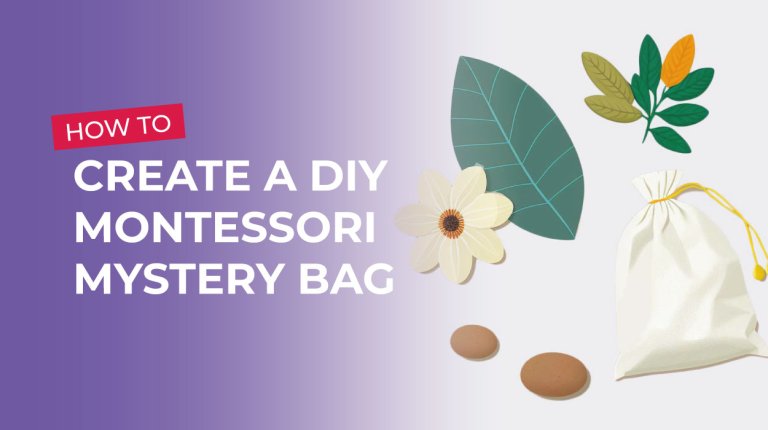What is the Montessori method?
The pedagogical technique known as the Montessori method was developed by Italian physician and educator Dr. Maria Montessori with the goal of fostering independence and a love of learning in young students. Independent learning, practical experience, and interactive activities are all hallmarks of the Montessori method.
The idea behind the Montessori system is that children are naturally curious and capable to learn. This approach to education aims to provide a prepared environment where children can explore and learn at their own pace. The teacher creates an atmosphere for children that encourages sensory development through repetition.
Where did the Montessori method originate?
The Montessori method is based on the theories and teachings of Italian physician and educator Dr. Maria Montessori, born in Italy in 1870. Dr. Montessori was a physician, educator, and the first woman to graduate from medical school in Italy.
She began her work with children in 1896 and quickly realized that they were capable of much more than was previously thought. Dr. Montessori developed her educational methods over many years and eventually opened her first school in 1907.
If you are a fan of history, you can learn more about Maria Montessori in this article.
The Montessori style quickly spread around the world, and it is now used in thousands of schools in over 100 countries. Montessori schools are particularly popular in the United States, where over 5,000 Montessori schools serve close to 1 million students.

The Montessori system has been used in schools for over a century and is now gaining popularity as a homeschooling option.
Montessori Philosophy
The Montessori philosophy is based on the idea that children are born with the desire to learn. The Montessori method believes that children should be given the opportunity to explore their interests by providing a stimulating and supportive learning environment.
The philosophy values experiential learning and eschews traditional methods of teaching. It also emphasizes the importance of social and emotional development and physical and cognitive growth.
Montessori classrooms are typically designed to promote exploration and hands-on learning. Materials and activities are often stored on low shelves within reach of the children, and there is a focus on collaborative work and peer-to-peer learning.
While the Montessori pedagogy is most commonly associated with early childhood education, it can also be used with students of all ages. In recent years, high schools and colleges based on the Montessori method have become more popular. Furthermore, families are increasingly taking the method beyond the classroom and adopting Montessori at home.
Montessori Principles
The Montessori principles of education highlight that all children have the potential to be creative, intelligent, and successful in life. 5 Montessori principles include:
- Respect for the child: Children are encouraged to do and learn things by themselves without undue assistance or interruption. They can choose their own materials to work at their own speed and be completely immersed in their work. It encourages autonomy in learning, healthy self, and discipline.
- Absorbent mind: According to this Montessori principle, the classroom setting should let children absorb as many experiences as possible, boosting learning opportunities.
- Sensitive Periods: Children are permitted to have “sensitive periods,” during which they are encouraged to devote their full attention to one part of their surroundings while ignoring the others. It instills passion and determination, and excellence in specific skills.
- Self-education: Children educate themselves through a self-directed curriculum and avoidance of extrinsic incentives. There are no pre-selected courses. Natural curiosity and intrinsic drive to study are emphasized under this principle.
- Prepared environment: Prepared environment includes a well-organized and well-equipped classroom. There are didactic, hands-on, and developmentally appropriate resources available. Teachers continue to provide children with adequately demanding learning experiences. Teachers also offer immediate learning feedback, which promotes brain growth, independent learning, curiosity, and engagement of all sensory processes.
The Montessori principles of education can be applied to any educational setting, from early childhood education to elementary school and beyond.
When to start using Montessori
According to research, the Montessori method of education is most effective for children between the ages of 3 and 6.
But, there is no one answer to this question as it depends on the individual child and family. Some parents start Montessori education as early as six weeks old, while others wait until their child is a bit older, such as six months or a year old. Montessori schools also cater to older children up to age six. The decision of when to start Montessori pedagogy rests solely with the parents.
Moreover, there are a few things to consider when deciding when to start the Montessori method of education. The first thing to think about is your child’s development. If your child is already interested in learning, they may be ready to start the Montessori method of education.
The second, and probably the most important, thing to consider is your family’s schedule. If you feel like you can commit to the Montessori style of education, then you should go for it! There is no perfect time to start the Montessori method of education, so it’s really up to you and your family to decide.
Conclusion
The Montessori pedagogy has been used in schools and classrooms worldwide for over a century, and it is known for its successful track record in educating and preparing children for the real world. If you are looking for an alternative to the traditional education system, the Montessori method can be the right option for you.







